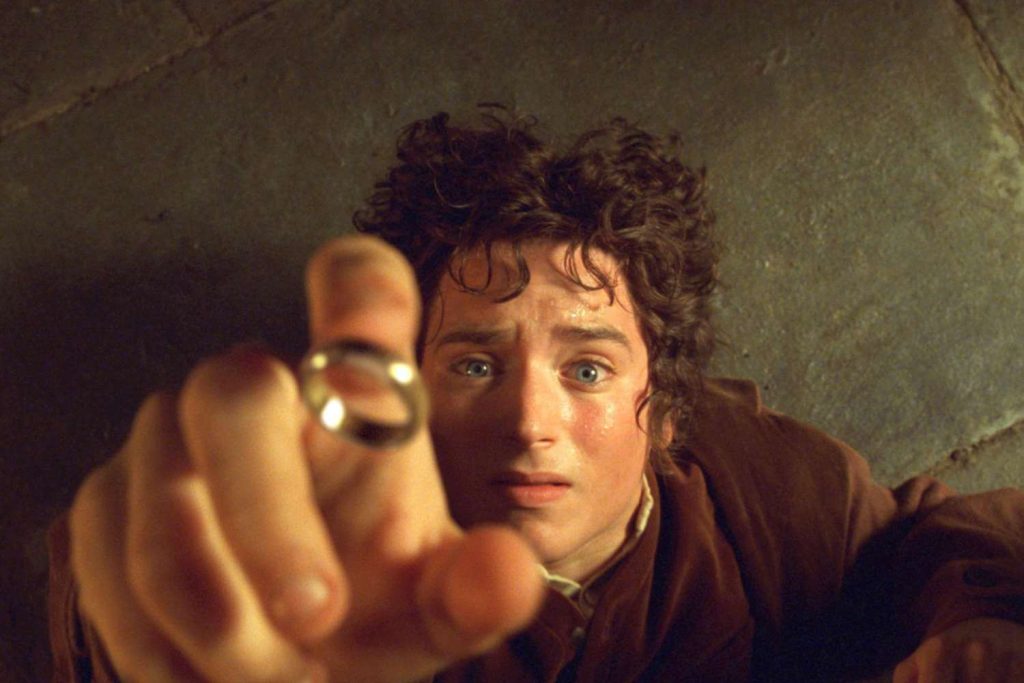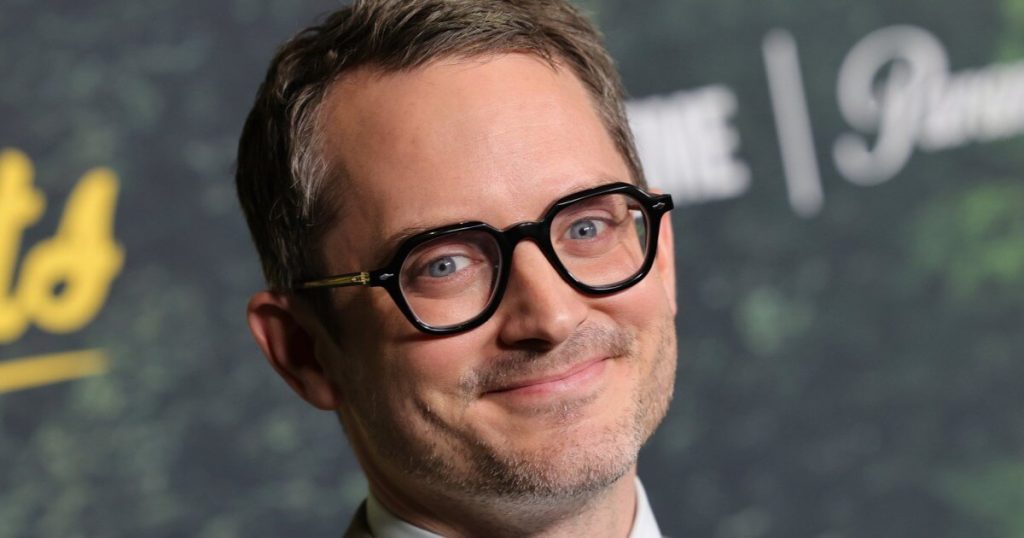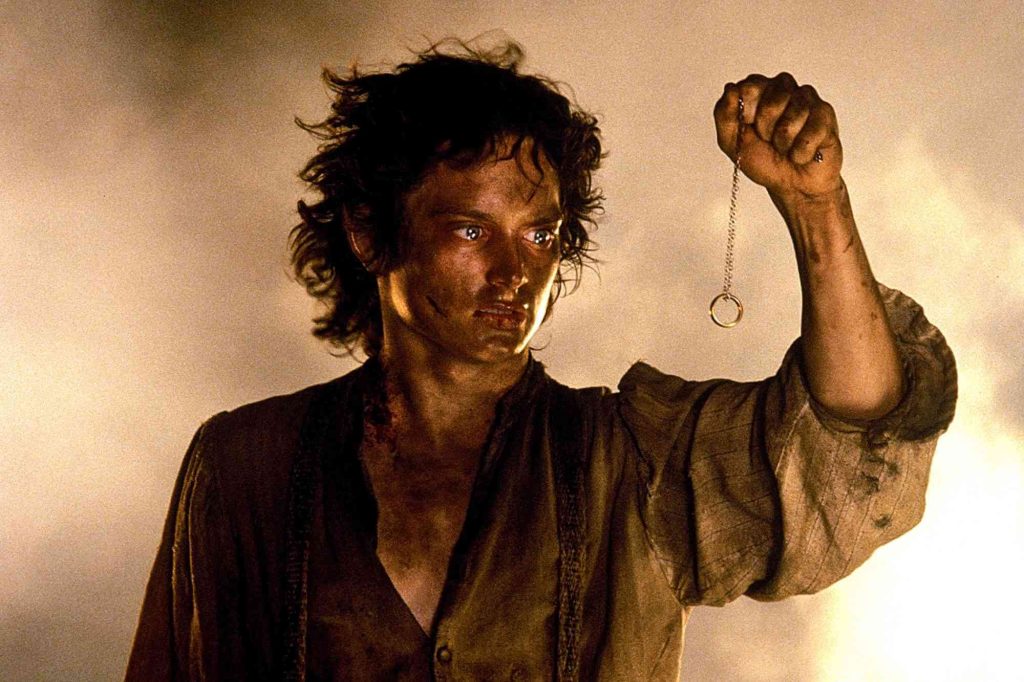World News
Elijah Wood Reveals Surprising Pay Disparity in Lord of the Rings Franchise: A Look at the Actor’s Reflection on His Journey
Introduction: The Unexpected Reality of ‘Lord of the Rings’ Pay
Elijah Wood, the iconic actor known for portraying Frodo Baggins in the Lord of the Rings trilogy, has made headlines once again. This time, it’s not for the success of the franchise, but for revealing the surprisingly modest pay that came with his starring role in the highly profitable film series. In a recent interview at the Texas Film Awards, Wood shared candid insights into the financial reality of his involvement in The Lord of the Rings, shedding light on a pay structure that deviated from what many might expect, given the colossal success of the films.

The Gamble Behind the Epic Trilogy
Peter Jackson’s Lord of the Rings trilogy was no small undertaking. Filmed back to back in a bold move that pushed the boundaries of filmmaking at the time, the production of these films came with significant financial risks. Jackson and New Line Cinema placed a monumental gamble on the adaptation of J.R.R. Tolkien’s beloved fantasy novels. The ambitious nature of the project meant that the film’s stars—who would later become globally recognized—were not offered the massive salaries that are often associated with blockbuster films today. Wood, along with his co-stars, found themselves in a unique situation where financial compensation was not reflective of the eventual global success of the films.
No Lucrative Payday for Wood and Fellow Cast Members
One of the most shocking revelations Wood made during his interview was the lack of a “lucrative scenario” in terms of pay for the actors involved. The typical Hollywood practice of renegotiating salaries based on the success of the first film in a franchise was not an option for the Lord of the Rings cast. Because all three films were shot simultaneously, there was no opportunity for the actors to renegotiate their contracts if the films turned out to be box office hits. This meant that even though the trilogy went on to gross nearly $3 billion worldwide, the actors’ salaries did not reflect the franchise’s massive success. Wood, however, expressed no bitterness, acknowledging the unique circumstances surrounding the production.

A Lifelong Legacy Over Financial Gains
Despite the relatively modest financial compensation, Elijah Wood remains deeply grateful for his involvement in the films, stating that the experience led to “some of the best experiences of my life.” The enduring legacy of the Lord of the Rings series, which continues to be a major part of his life, is something he treasures. Wood noted that the films weren’t just a career milestone—they became a defining part of his identity. His deep connection to the project, and the lifelong association with his portrayal of Frodo Baggins, has proven far more valuable than a large paycheck.
Cate Blanchett’s Similar Reflections and Broader Industry Trends
Elijah Wood’s reflections align with similar sentiments expressed by other actors from the franchise, most notably Cate Blanchett, who portrayed the elven queen Galadriel. Blanchett famously revealed that no one involved in the Lord of the Rings series was paid significantly for their work. Her comments echoed Wood’s sentiments, noting that while the experience was extraordinary, the financial rewards were not commensurate with the series’ unprecedented success. These candid revelations have sparked wider discussions about the pay disparity in Hollywood, particularly regarding the compensation of actors in long-term, high-profile projects. Both actors have emphasized that, despite the low pay, the experience of working with Peter Jackson and being part of such a groundbreaking project has been its own reward.
Reflecting on Hollywood’s Changing Landscape and Lessons Learned
The disparity between the Lord of the Rings cast’s pay and the films’ financial success raises important questions about the evolving nature of the film industry. Today, actors in blockbuster franchises are often able to negotiate lucrative pay deals, with some securing substantial earnings through profit-sharing arrangements. The Lord of the Rings trilogy, however, was a product of a different era—one where risk-taking and financial uncertainty were more common in the filmmaking process. Wood’s reflections serve as a reminder that the rewards of being part of a groundbreaking film project are not always immediately financial. Moreover, they highlight the importance of the creative and personal fulfillment that can come from being involved in such a monumental cultural milestone.
Conclusion: A Gratifying Journey Beyond the Paycheck
Elijah Wood’s insights into the pay structure of the Lord of the Rings trilogy serve as a humbling reminder of the challenges that even major Hollywood productions face. While the financial rewards may not have been what he or his co-stars anticipated, the legacy of the films, the personal growth experienced during filming, and the joy of being part of something that has impacted the world for generations are invaluable rewards. Wood’s reflections on the franchise highlight the complexities of Hollywood pay structures and the often overlooked aspects of a film’s creation, which can be just as significant as the monetary rewards that typically accompany success.
From dragontrendtees


